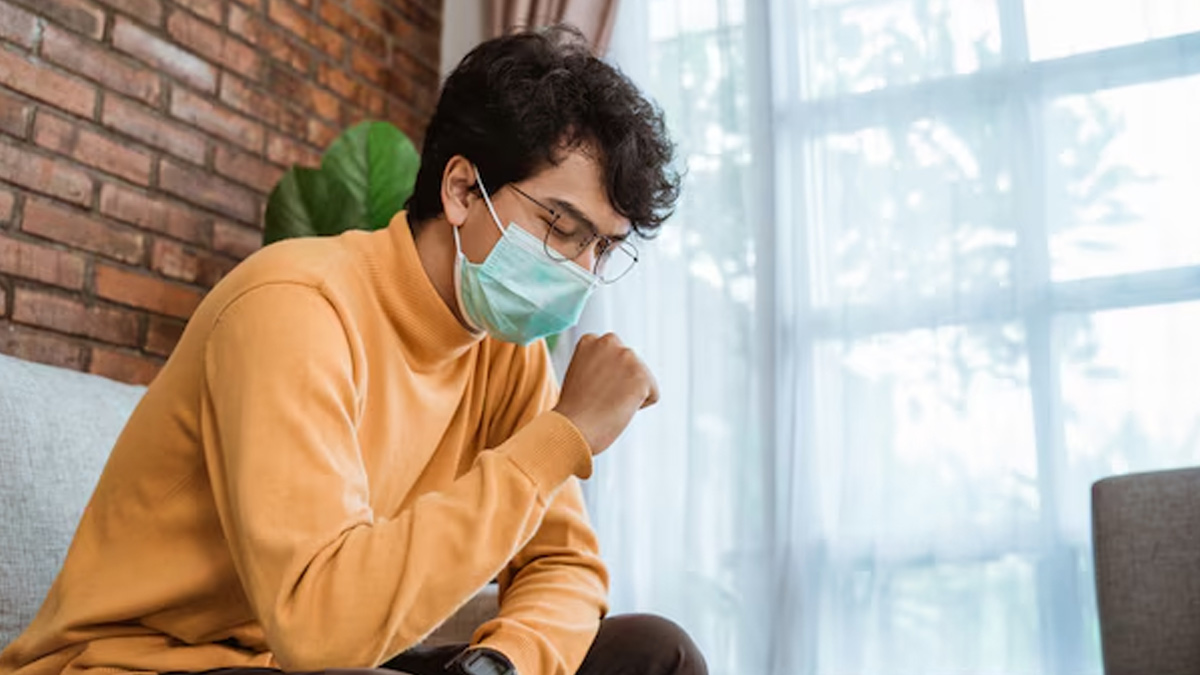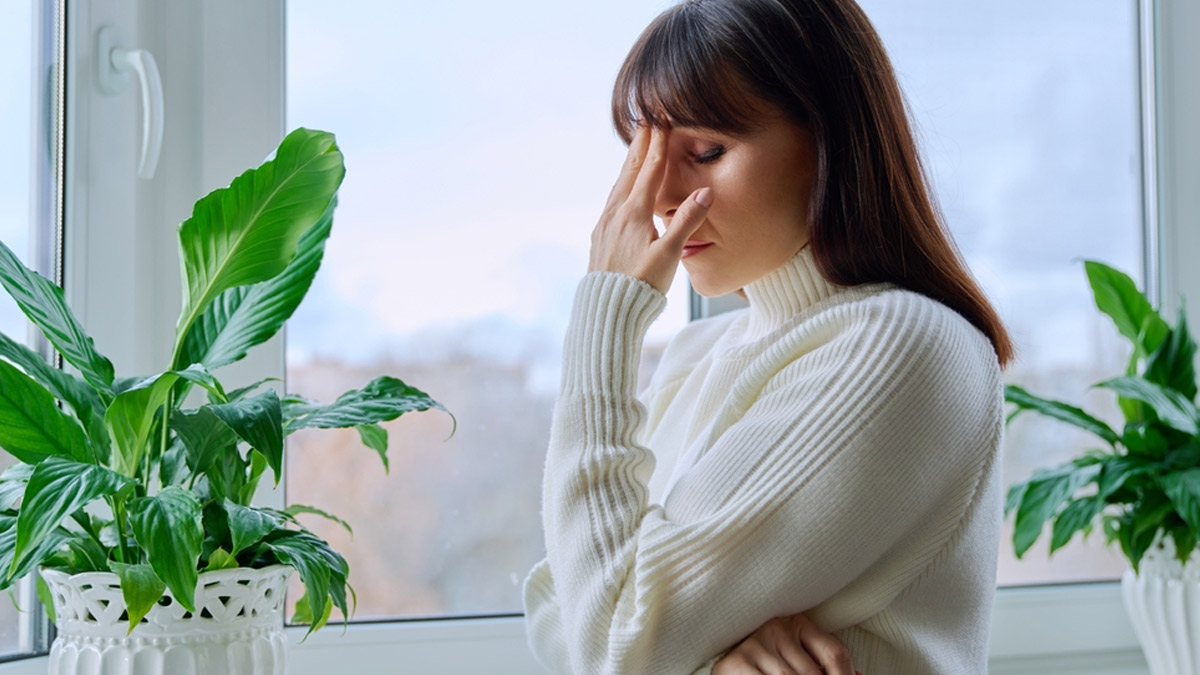
It’s been over four years since the pandemic first upended our lives. For most people, COVID-19 is now a distant memory, tucked away behind masks, vaccines, and lockdowns we’d all rather forget. But for many others, the virus left something behind: a lingering shadow in the form of a weakened immune system.
Table of Content:-
If you've noticed that you're falling sick more often these days, colds that won’t quit, strange fatigue, gut issues, or a general sense of your body being 'off,' you’re not imagining things. We spoke to Dr Siri M Kamath, Consultant Internal Medicine, Gleneagles BGS Hospital, Kengeri, Bengaluru, who explained this post-COVID immune puzzle.
What Happens Inside the Body?

Let’s break it down. “When you fight off a viral infection like COVID-19, your immune system starts to overdrive. For most people, that immune response resets and stabilises later. But in some, especially those who had severe illness, repeated infections, or long COVID symptoms, that reset doesn’t happen cleanly,” explained Dr Kamath.
Instead, the immune system stays overactive or underactive, almost like a faulty thermostat. Some people experience chronic inflammation, while others find their bodies can’t mount a strong defence against new pathogens. Either way, the result is frequent illness and slower recovery.
A research study published in Nature has revealed that long-term natural immunity to COVID-19 has been nonexistent since the emergence of Omicron in late 2021.
Also Read: JN.1 Variant Triggers COVID Surge in Singapore: What Makes It Different And How to Stay Safe
Long COVID: The Invisible Aftermath
There’s also the group dealing with long COVID, a poorly understood condition with symptoms that stretch for months after the infection clears. “These include brain fog, joint pain, breathlessness, heart palpitations, and extreme fatigue. While the causes are still unravelling, a key factor seems to be immune dysregulation, which is your body’s defence system going haywire,” added Dr Kamath.
The frustrating part? Routine blood tests often appear normal. This means people often feel unwell but can’t prove or explain it.
But I only had mild COVID. Why am I still sick?

“That is a regular question I receive in my clinic. While severe cases tend to leave a greater impact on the immune system, minor or asymptomatic occurrences can cause changes in certain people. Genetics, stress levels, gastrointestinal health, and pre-existing illnesses all influence how people recover,” said Dr Kamath.
Many also ask, ‘Why do I catch every cold, cough, or tummy bug lately?’ The answer again lies in immune surveillance, the body’s ability to detect and eliminate threats before they take hold. Post-COVID, some people’s defences are just slacking off.
Infections that might once have passed unnoticed now become full-blown episodes. Many also report a longer recovery time, bouncing from one illness to the next without feeling fully ‘back to normal’ in between.
Also Read: From Historical Plagues to Modern Pandemics: The Historical Impact of Mosquito-Borne Diseases
What Can You Do to Rebuild Immunity?
This is where it's tempting to suggest a supplement or a secret herb, but the truth is more grounded. Healing requires ongoing care, not fast cures. Here are five science-backed, actionable habits to boost your immunity after COVID:

1. Make sleep a priority
Deep sleep is when the immune system regenerates. The recommended amount of sleep per night is 7-9 hours. Turn off your screens an hour before bedtime, and avoid caffeine after lunch.
2. Eat to nourish, not just satisfy
Focus on entire foods, such as leafy greens, citrus, berries, nuts, legumes, and fermented foods like curd or kimchi. These nourish your gut microorganisms, which in turn boost your immune system. Don't overlook omega-3s and vitamin D.
3. Move lightly but daily
You do not require high-intensity workouts right away. Begin with a stroll, yoga, or swim. Exercise lowers inflammation and increases circulation, allowing immune cells to do their job.
4. Take stress seriously
Chronic stress is an immune suppressant. Meditate, journal, reconnect with nature, or talk to someone. Emotional well-being is physical health.
5. Rebuild your social life
Isolation hurts our immunity more than we realised. Regular human interaction, not on screens helps regulate stress hormones and boosts resilience.
When Should You See a Doctor?
If you're catching infections too frequently, feel persistently fatigued, or notice unexplained symptoms like joint aches, rashes, or breathlessness, don’t brush it off. A physician may recommend checking markers of inflammation, nutritional deficiencies, or even do advanced immune profiling.
In some cases, specialist support like a clinical immunologist or pulmonologist may be needed, especially if COVID-19 is suspected.
You're Not Imagining It
Dr Kamath concluded, “This new phase of life after the pandemic isn’t just psychological. Many people are experiencing real, physical after-effects and struggling in silence because their tests come back ‘normal.’ The good news? The body has remarkable healing power when supported well. But it needs time, compassion, and daily choices that work in its favour. So if your body feels like it's still catching up to your mind post-pandemic, be patient, know you're not alone, and certainly not imagining things.”
[Disclaimer: This article contains information provided by an expert and is for informational purposes only. Hence, we advise you to consult your professional if you are dealing with any health issue to avoid complications.]
Also watch this video
Read Next
JN.1 Variant Triggers COVID Surge in Singapore: What Makes It Different And How to Stay Safe
How we keep this article up to date:
We work with experts and keep a close eye on the latest in health and wellness. Whenever there is a new research or helpful information, we update our articles with accurate and useful advice.
Current Version
